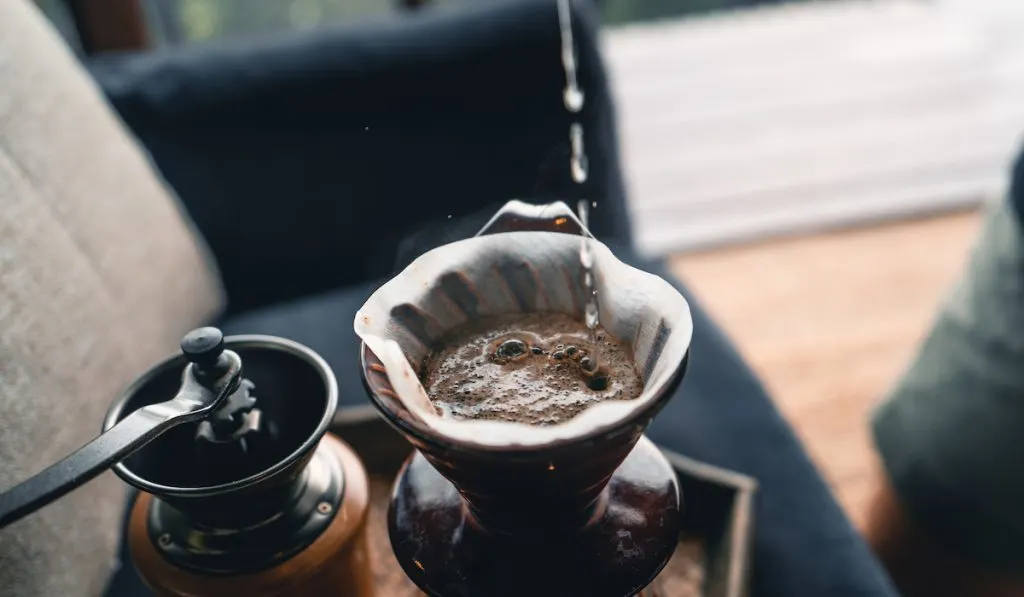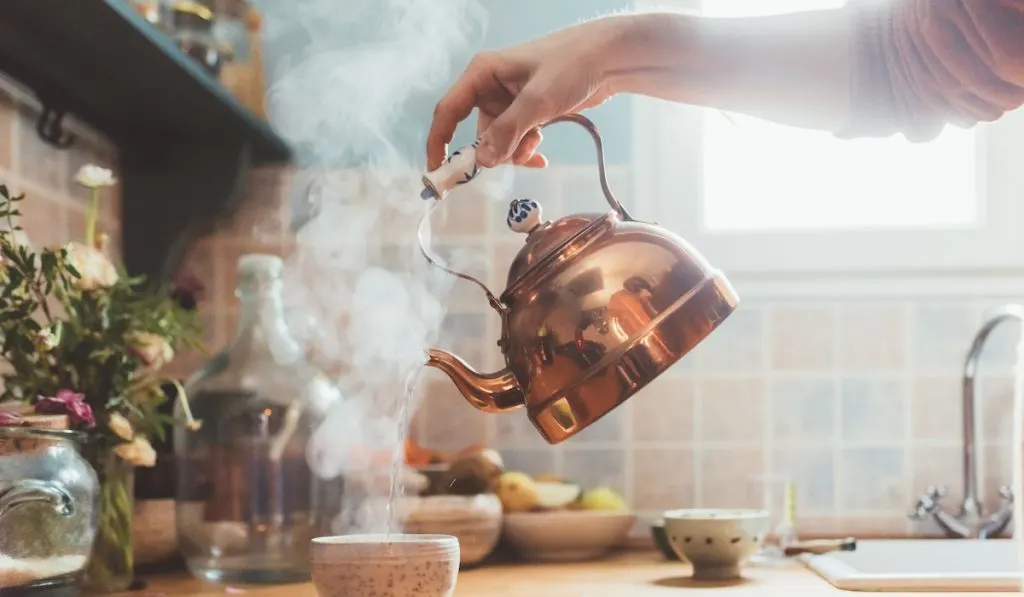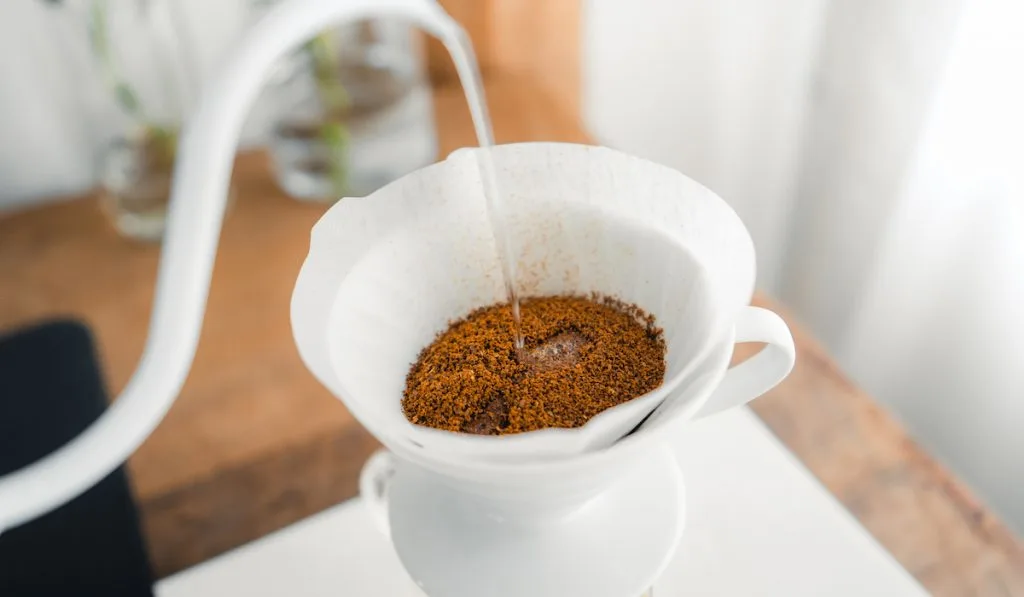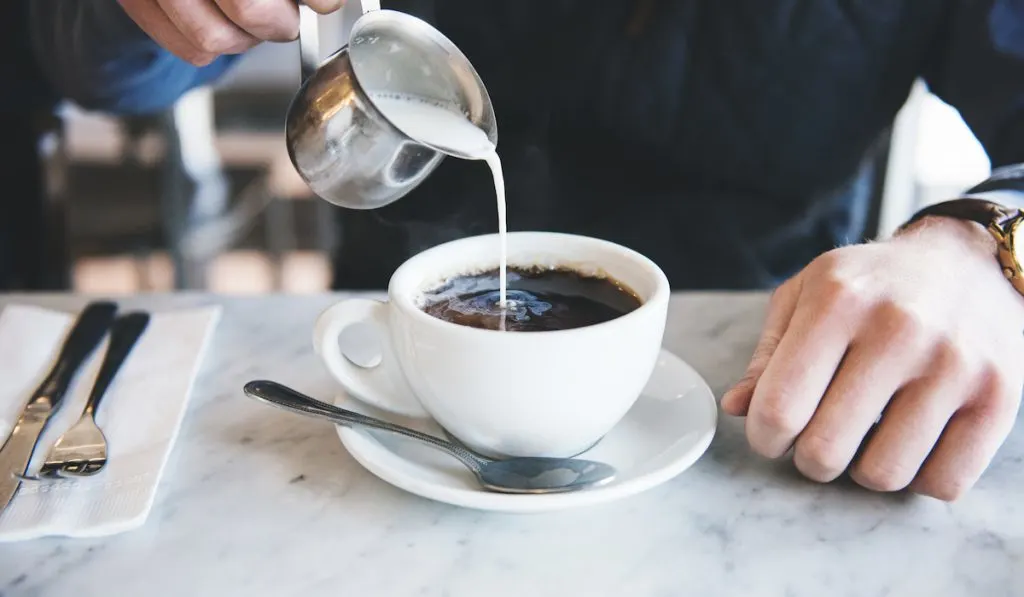Coffee beans are typically roasted at temperatures between 370°F and 540°F.
So, say you are told boiling water ruins instant coffee. Knowing the temperature of boiling water is below the roasting temperature of coffee, you might be shocked.
But then again, is the assertion about boiling water and instant coffee true? Let us see.
Does boiling water ruin instant coffee?
So far, there is no definitive rationale to back the claim that boiling water ruins instant coffee.
However, it is known that instant coffee brewed with boiling water will taste a bit different from those brewed with water at lower temperatures.
We provide more clarification on the effect of boiling water on instant coffee in the rest of this article.
Does Boiling Water Ruin Instant Coffee? (Can You Really “Burn” Instant Coffee)?
There is no concrete backing for the claims that boiling water ruins instant coffee. But you may find that instant coffee prepared with boiling water will taste different from those brewed with warm water.

This difference in taste may be due to the dissimilarities in the rate of extraction. It is thought that boiling water extracts faster than water at lower temperatures.
There are also claims that boiling water can burn instant coffee.
Well, water typically boils around 212°F – far from the roasting temperature of coffee. So, it is not very likely that boiling water will burn instant coffee.
Some people declare that their coffee tastes quite bitter when prepared with boiling water. But this bitter taste might not be from the coffee getting burnt. It may only be a consequence of the rate and extent of extraction produced from brewing with boiling water.

How Temperature Affects Taste
As we have suggested, instant coffee will taste different at various temperatures.
The difference in taste is driven by the temperature of the water using in brewing it. So, how does temperature affect the taste of coffee?
Well, the temperature of your brewing water determines the rate and extent of extraction from your coffee. Extraction is basically the dissolution of flavors and compounds from the coffee into solution.
At higher temperatures, extraction is faster, harder to control, and done to a higher degree. At lower temperatures, extraction is expectedly slower and done to a lower degree.
Coffee contains various volatile oils, aromatic compounds, caffeine, and organic acids. Each one of these substances contributes to taste and is affected differently by the change in extraction rate.
Generally, some of those substances are extracted faster and to a greater degree, depending on temperature. The reverse also applies since some substances are extracted slowly and sparingly depending on temperature.
In other words, you could say the ratio of the various substances that contribute to the flavor of your coffee varies with temperature.
Besides the variation in extraction rate, the effect of temperature on your taste buds may also affect how you taste coffee.
Various studies back the claim that you might taste things differently as their temperature changes.
Some sources even claim that with hot coffee, we are less likely to perceive bitterness. But with cooler ones, sourness may be easier to perceive.

What Is the Best Temperature Water for Instant Coffee?
Well, the National Coffee Association recommends brewing instant coffee between 195°F and 205°F. Some other sources extend this range a bit as they recommend 190°F and 205°F.
One thing is clear with those ranges – they are not far off the temperature of boiling water (212°F). This further strengthens the position that boiling water does not ruin instant coffee.
Generally, it is thought that the closer the water is to 205°F, the better the coffee. But the temperature you choose actually depends on what you want.
If you desire a lighter roast, use water closer to 205°F. But if you want something darker, brew at lower temperatures.

Should You Put Milk in Your Instant Coffee Before Adding Water?
It appears that you can put milk before or after adding water to your instant coffee.
The choice is yours. However, you may want to opt for putting your milk after dissolving the coffee in water. This process might be easier.
Coffee would dissolve faster in water compared to milk. So, you will not have to stir too much to dissolve your coffee.
Besides, if you wish to dissolve instant coffee in milk, you may have to heat the milk.
Heating milk is not desirable since it can destroy some of the beneficial proteins the milk holds. But you can heat water without losing any proteins.
Final Thoughts
There is no conclusive rationale to support the claim that boiling water ruins or burns instant coffee.
The extraction rate and taste of coffee might differ when brewed with extremely hot water. But there seems to be no evidence proving that coffee gets ruined because the brewing water is boiling.
Resources
- https://www.satsumaloans.co.uk/tools-and-tips/how-to-make-the-perfect-cup-of-instant-coffee
- https://www.happymumhappychild.co.nz/the-lowdown-burning-coffee/
- https://www.reddit.com/r/Coffee/comments/1zykg9/can_you_really_burn_coffee_by_exposing_it_to/
- https://www.coffeebean.com/blog/our-coffee/water-and-coffee-understanding-how-temperature-affects-your-cup
- https://academic.oup.com/chemse/article/42/2/153/2547704
- https://www.thanksgivingcoffee.com/hot-coffee-cold-coffee-how-does-temperature-affect-taste/
- https://theprimadonnalife.com/coffee/coffee-101/why-coffee-tastes-sour-how-to-prevent
- https://www.wakacoffee.com/blogs/coffeelifeblog/tricks-you-need-to-know-for-making-instant-coffee
